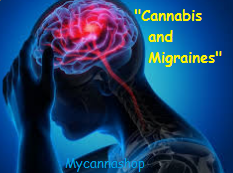Monday, 10 April 2023
"Cannabinoids & Glioblastoma Therapy"
Thursday, 6 April 2023
"The Effectivenes of Medicinal Cannabis in Adults with Non-Cancer Diagnoses"
The study reviewed 157 medical records, with the majority of patients were predominantly female (63.7%), aged 63.0 years, and from the Greater Sydney region (86.6%). Most patients were born in Australia (66.9%) , with 17.8% stating previous cannabis use and having neurological (58.0%) or musculoskeletal (24.8%) conditions.
Friday, 5 August 2022
"The use of Medical Cannabis for Treating Cancer Related Symptoms in Oncology Patients"
Traditionally, cancer-related pain is mainly treated by opioid analgesics but a promising substitute for opioid-based medication is Medical Cannabis (MC) and Cannabinoid treatment for cancer-related pain is generally recognized as safe!
Despite the fact that there is a knowledge gap in the study of Cannabis, especially for treating cancer-related pain, a 2020 study showed that most cancer patients requested MC treatment from their oncologist.
The Adverse Effects (AEs) from cannabinoids for cancer treatment are generally well tolerated by the patients and categorized as mild to moderate and the most frequent AEs are memory impairment, drowsiness, nausea, vomiting and xerostomia (dry mouth).
This long-term study was conducted between January 2019 and September 2021 in Israel and pulished in Frontiers in Pain Research on 20 May 2022.
Saturday, 21 May 2022
"Grant funds to researchers who are studying cannabis treatment for cancer"
The "National Institutes of Health" (NIH) is prepping to grant funds to researchers who are studying cannabis treatment for cancer and will soon be available to researchers who are working to treat cannabis.
Within the US, many states have permitted the use of cannabis products, but state policies vary widely regarding the types of products allowed and for what purpose they may be used. Concurrently, the delivery methods of cannabis have diversified and now include edibles, oils, tinctures, topicals and inhaled forms.
Cancer patients use cannabis and cannabinoids to manage symptoms of cancer and cancer treatment including anorexia, nausea, and pain. Recent survey evidence suggests that a quarter of cancer patients have used cannabis for symptom management. Despite the increase in cannabis and cannabinoid use, research about their health effects, including potential harms and benefits, remain limited.
Saturday, 19 March 2022
"Cannabidiol as effective as antipsychotic meds with fewer side effects".
In 2012, researchers published a study in Translational Psychiatry showing that a CBD isolate can treat schizophrenia as effectively as antipsychotic pharmaceuticals — and with far fewer side effects.
In this study, researchers led by Markus Leweke, MD, of the University of Cologne in Germany recruited 39 people with schizophrenia who were hospitalized for a psychotic episode.
Saturday, 29 January 2022
"SAFE & LEGAL ACCESS TO MEDICAL CANNABIS AND CANNABIDIOL (CBD)"
While not everyone with epilepsy should or would consider medical cannabis or cannabidiol (CBD) as a treatment option, some people living with uncontrolled seizures have reported beneficial effects and reduced seizure activity when using medical cannabis, especially strains rich in CBD. Further research is needed on the effects of medical cannabis on epilepsy, but when recommended by a treating physician, medical cannabis may be the best alternative for some individuals living with drug-resistant epilepsy and uncontrolled seizures.
Access to medical cannabis will support increased research efforts and allow individuals who have failed to gain seizure control an option for treatment.
Monday, 11 October 2021
"Neuroprotective Effects Of Cannabis" by Sensi Seed
-Antioxidative & anti-inflammatory properties
In recent years the evidence for the antioxidative and anti-inflammatory properties of various cannabinoids has become well-established, and our understanding of the role they play in modulating neurotransmission too has grown. Thus, serious consideration is now being given to their potential as neuroprotective agents. Cannabinoids have been shown to prevent neuronal death in acute neuronal injury, including Ischemic Stroke (IS) and Traumatic Brain Injury (TBI), as well as provide symptomatic relief in Multiple Sclerosis (MS), Huntington’s disease, and other chronic neurodegenerative diseases.
Monday, 4 October 2021
"Cannabis and Breast Cancer"
Breast cancer is cancer that develops from breast tissue. Signs of breast cancer may include a lump in the breast, a change in breast shape, dimpling of the skin, fluid coming from the nipple, a newly inverted nipple, or a red or scaly patch of skin. In those with distant spread of the disease, there may be bone pain, swollen lymph nodes, shortness of breath, or yellow skin.
Thursday, 30 September 2021
"Cannabis and Cancer"
Monday, 13 September 2021
"CANNABIS & SPIRITUALITY"
Saturday, 4 September 2021
"Prescription of a THC/CBD-Based Medication to Patients with Dementia: A Pilot Study in Geneva"
Currently, the options for treating BPSD (Behavioral and Psychological Symptoms of Dementia) include pharmacological and nonpharmacological therapies. Psychotropic medications are often used to reduce the frequency and severity of BPSD, but in the majority of patients, they provide only modest symptom control and important side effects.
The interest of cannabinoids in Alzheimer disease and other forms of dementia has increased first as neuroprotective drugs in animal studies. Indeed, some studies suggest a potential beneficial effect of CB1 and CB2 receptor agonists on reducing harmful β-amyloid peptide action and tau phosphorylation seen in Alzheimer disease as well as increasing intrinsic brain repair mechanisms.
Thursday, 4 March 2021
"Cannabis & Chemotherapy Side Effects"
Wednesday, 3 March 2021
"Cannabis & Chronic Wounds"
Sunday, 24 January 2021
"Cannabis & Alzheimer's Desease"
Wednesday, 11 November 2020
"Cannabis and Fibromyalgia"
Wednesday, 7 October 2020
"CBD & Liver Disorders"
Actually the article claims that CBD “could be damaging our livers in the same way as alcohol and other drugs." ... the evidense was taken by a study from researchers at the University of Arkansas in Little Rock.
Also the doses was extremely higher than the normal (20mg/kg)...
Wednesday, 23 September 2020
"New Studies Reveals That Cannabis Helps PTSD Patients"
Previous research has shown that cannabis has the potential to reduce anxiety, or even prevent heightened anxiety in threatening situations. But up to this point, no studies had investigated this response in adults dealing with trauma - such as those with PTSD.
Two new studies point to the way that cannabinoids may help treat PTSD. One shows how cannabis can reduce activity in the amygdala (part of the brain associated with fear responses to threats) andd the other suggests that the plant’s cannabinoids could play a role in extinguishing traumatic memories. Both effects could be therapeutic for those suffering from PTSD - according to those studies.
Saturday, 15 August 2020
"The Antimicrobial Activities of Phytocannabinoids"
Novel antimicrobial drugs are urgently needed to counteract the increasing occurrence of bacterial resistance.
Extracts of Cannabis sativa have been used for the treatment of several diseases since ancient times.
It has been demonstrated that several cannabinoids show potent antimicrobial activity against primarily Gram-positive bacteria including methicillin-resistant Staphylococcus aureus (MRSA). As first in vivo efficacy has been demonstrated recently, it is time to discuss whether cannabinoids are promising antimicrobial drug candidates or overhyped intoxicants with benefits.
The worldwide spread of bacterial resistance against market antibiotics has been identified as one of the major threats to public health by scientists and healthcare authorities. Thus, new antibacterial strategies and antibacterial compounds are urgently needed to counteract the increasing occurrence of antibiotic-resistant and, especially, multidrug-resistant (MDR) pathogens, to keep the live-saving advantages toward bacterial pathogens.
In 2017, the World Health Organization (WHO) emphasized the crucial need for antimicrobial drug development against a group of 13 different genii, families, and specific species of pathogenic bacteria.The real problem is that the vast majority of these prioritized bacterial pathogens are drug-resistant Gram-negative bacteria.
However, antimicrobial resistances are also increasing in Gram-positive bacteria and, among the high priority pathogens, the Gram-positive pathogen Staphylococcus aureus is the leading cause of both healthcare and community-associated infections worldwide, and a major cause for morbidity as well as mortality.
Wednesday, 29 July 2020
"Cannabis and Migrains"



















